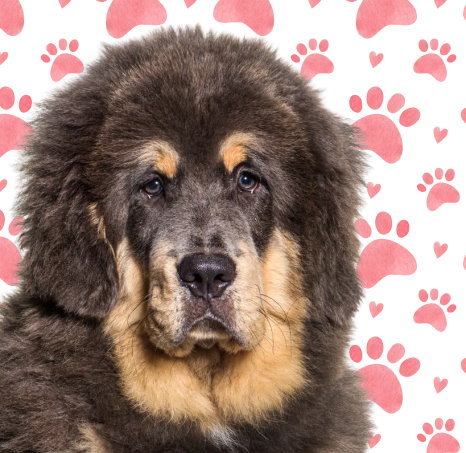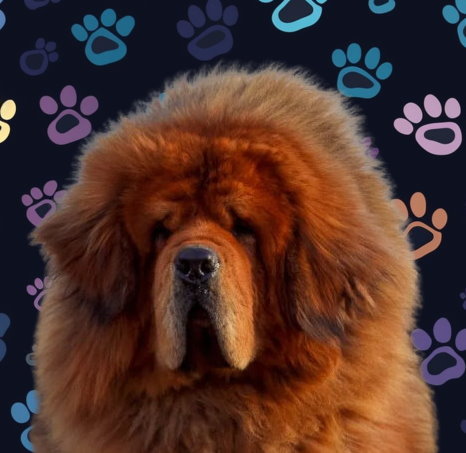Welcome to Dog Training Newbies !
Welcome to Dog Training Newbies !

As your Tibetan Mastiff transitions into their senior years, their care requirements will change. Tibetan Mastiffs are known for their independent nature and protective instincts, but like all dogs, they require special attention as they age. Caring for an older Tibetan Mastiff involves adjustments in nutrition, exercise, medical care, and emotional support. By being proactive and mindful of these changes, you can ensure your senior Mastiff enjoys a comfortable, healthy, and happy life in their golden years.
RECOGNIZING WHEN YOUR TIBETAN MASTIFF IS A SENIOR
Generally, Tibetan Mastiffs are considered seniors by the time they reach 7 to 9 years of age, though this can vary depending on genetics, lifestyle, and overall health. Common signs of aging include slower movement, difficulty standing up or lying down, gray hairs around the muzzle, and changes in behavior. As your Tibetan Mastiff starts to age, it’s important to pay closer attention to these subtle signs and adjust their care accordingly.
ADJUSTING NUTRITION FOR SENIOR TIBETAN MASTIFFS
Proper nutrition is vital at every stage of life, but as your Tibetan Mastiff ages, their dietary needs will shift. Senior dogs typically require fewer calories since their activity level tends to decrease. To avoid obesity, which is common in older dogs, you should feed your Tibetan Mastiff a balanced, age-appropriate diet that focuses on maintaining lean muscle mass while providing essential nutrients.
Consider switching to a senior dog food formula that contains joint-supporting supplements such as glucosamine and chondroitin. These ingredients help protect your Mastiff’s joints and reduce the risk of arthritis, which is prevalent in larger breeds. Omega-3 fatty acids are also beneficial for promoting healthy skin and coat while reducing inflammation in older dogs.
Regularly monitor your dog’s weight and adjust portion sizes as needed. Avoid feeding too many high-calorie treats and focus on nutrient-rich snacks, such as fruits or vegetables, which can support your dog’s overall well-being without adding unnecessary calories.
MAINTAINING PHYSICAL ACTIVITY FOR SENIOR TIBETAN MASTIFFS
Although Tibetan Mastiffs tend to slow down as they age, they still benefit from regular, low-impact exercise to maintain their physical and mental health. Keeping your dog active helps to prevent muscle loss, maintain joint flexibility, and prevent obesity. Daily walks, gentle play sessions, and swimming are excellent ways to keep your senior Mastiff moving without putting too much stress on their joints.
Avoid high-impact activities like jumping or running, as these can strain your Mastiff’s joints. Pay attention to your dog’s energy levels and adjust exercise routines accordingly. Senior dogs often tire more easily, so shorter but more frequent walks may be better suited to their needs. Additionally, provide plenty of soft bedding to ensure your Tibetan Mastiff has a comfortable place to rest and recover after physical activity.
MONITORING HEALTH AND REGULAR VET VISITS
Regular veterinary check-ups become even more important as your Tibetan Mastiff ages. Preventive care can help catch age-related health issues early, improving the chances of successful management. Annual or biannual vet visits are recommended for senior dogs, as they allow your vet to monitor your dog’s overall health and screen for common issues like arthritis, dental disease, and organ dysfunction.
Senior Tibetan Mastiffs are more prone to certain health issues such as hip dysplasia, hypothyroidism, and arthritis. Your vet may suggest diagnostic tests, such as blood work, X-rays, or ultrasounds, to check for these conditions. Be sure to discuss any changes in your dog’s behavior, appetite, or mobility with your vet, as these could be early indicators of health problems.
Additionally, keep an eye on your Mastiff’s dental health. Senior dogs are more susceptible to periodontal disease, which can lead to pain, difficulty eating, and even systemic infections. Regular dental cleanings and at-home oral care can help prevent these issues.


SUPPORTING COGNITIVE FUNCTION AND EMOTIONAL WELL-BEING
As Tibetan Mastiffs age, they may experience cognitive decline, often referred to as canine cognitive dysfunction (CCD). Symptoms of CCD can include confusion, disorientation, changes in sleep patterns, and increased anxiety. If you notice these signs, it’s important to consult your vet, who may recommend dietary supplements or medications to support cognitive health.
Mental stimulation is key to keeping your senior Mastiff’s brain active and sharp. Engage your dog in gentle play, puzzle toys, and basic training exercises to keep their mind engaged. Social interaction is equally important—spending quality time with your Tibetan Mastiff can help alleviate loneliness and reduce anxiety.
Provide a stable, predictable environment for your dog to minimize stress. Older dogs may become more sensitive to changes in routine, so maintaining consistency in feeding, walking, and sleeping schedules can help keep them calm and content.
ADAPTING YOUR HOME FOR SENIOR COMFORT
As your Tibetan Mastiff ages, they may develop mobility issues that make it difficult for them to navigate your home. Simple changes can make a big difference in their comfort and quality of life. Consider adding non-slip rugs or mats on hard floors to help prevent slips and falls. If your dog has trouble climbing stairs or jumping onto furniture, provide ramps or steps to make it easier for them to move around.
Make sure your dog has a soft, supportive bed that cushions their joints. Orthopedic beds can be especially helpful for dogs with arthritis or other joint problems, offering the extra support they need to sleep comfortably. Place the bed in a quiet, easily accessible area of your home, away from drafts or excessive noise, so your dog can rest peacefully.
CONCLUSION: CHERISHING YOUR SENIOR TIBETAN MASTIFF
Senior Tibetan Mastiffs may require more care and attention, but the bond you share with them is incredibly rewarding. By adapting their diet, exercise, and living environment to meet their changing needs, you can help ensure that your aging Mastiff enjoys a healthy and happy life. Regular vet visits, mental stimulation, and a comfortable home environment will go a long way in keeping your senior Tibetan Mastiff thriving.
In their senior years, Tibetan Mastiffs are more than just guardians—they’re loyal companions who have spent years protecting and loving their family. With the right care, you can make sure that your Mastiff’s golden years are just as full of love, comfort, and joy as the rest of their life.